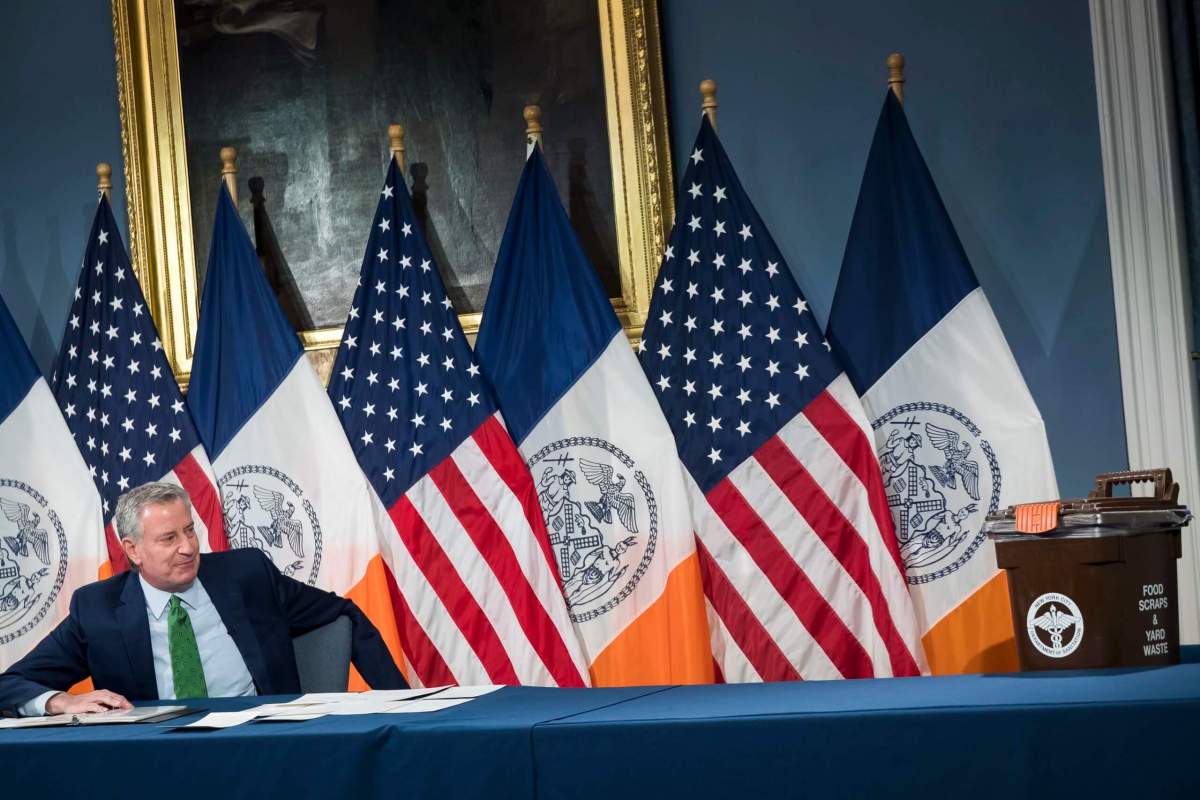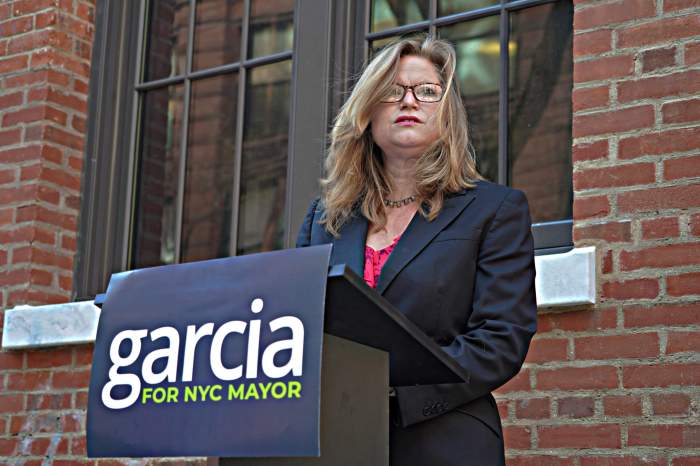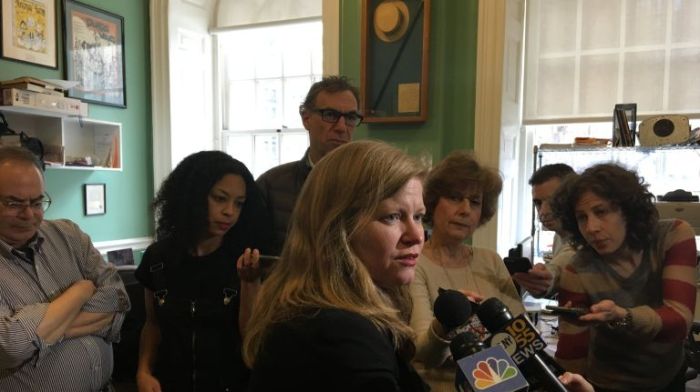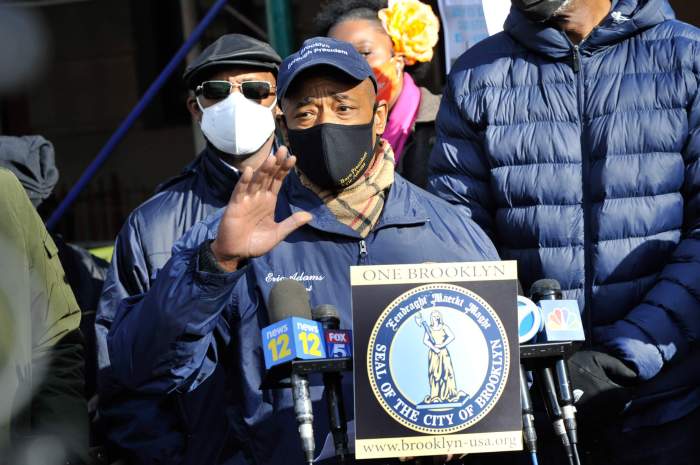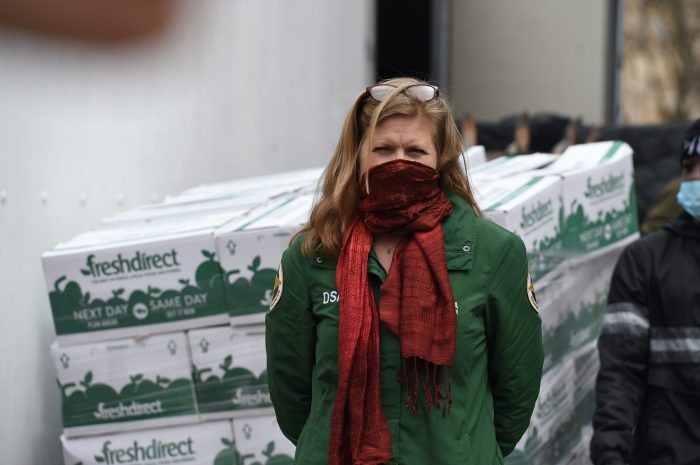The Big Apple won’t be forced into composting!
New Yorkers are not ready to have a mandatory food and yard scraps recycling program, Mayor Bill de Blasio said Friday — a day after he hailed the relaunch of the city’s composting curbside pickup this fall.
“We expect this is something that can be extended all over the city, every kind of neighborhood, and I believe people will get the hang of it over time and like it, and then it can go more and more and more,” de Blasio said after questioned by amNewYork Metro at his April 23 press briefing. “But in this moment, coming off the pandemic and with all the struggles and stresses people going through, I don’t think it’s the time for mandatory now.”
Hizzoner announced the revival of Gotham’s curbside organics pickup program Thursday after an almost year-long pause due to pandemic budget cuts, but added that the program would still only be available in certain neighborhoods and run on an op-in basis.
Building owners in some parts of Brooklyn, Queens, the Bronx, and Staten Island will be able to register to have their scraps collected in the signature brown bins through a portal from August onward with pickups starting back up in October.
De Blasio, a self-described “obsessive composter,” and city Sanitation Commissioner Ed Grayson argued that was the best way to bring back the eco-friendly initiative, which helps divert organic waste from landfills and incinerators.
But de Blasio’s former trash czar and current candidate to replace him Kathryn Garcia slammed the move as not going far enough, demanding the city reintroduce the composting program in every neighborhood and make it mandatory, a move that has shown more effective results in other cities.
“The mayor’s ‘compost comeback’ plan to restore the program on an opt-in basis via enrollment doesn’t go far enough,” Garcia said Thursday. “Worse, it is going to turn composting into a ‘luxury’ that is available for New Yorkers that have the resources to organize community support and submit bureaucratic paperwork. Curbside organics should be universal – plain and simple.”
Organics make up about a third of residential waste in the city, which when left to decompose in landfills can emit the harmful greenhouse gas methane, which is 25 times more potent than carbon dioxide.
If treated properly, the materials can become nutrient-rich compost to feed back into the city’s parks and community gardens or turned into biogas.
Before de Blasio paused organics collection in May 2020, the program, which dates back to the final years of former Mayor Michael Bloomberg in 2013, already suffered from a low participation rate of just 10 percent within the sporadic coverage area, with a lack of funding to advertise and educate New Yorkers about the program.
Mandatory organics separation and curbside pickup have been a way of life for other cities, particularly on the west coast.
San Francisco introduced the measure in 2009 and had an 80 percent diversion rate from landfills within three years — the highest of any city in the nation. Seattle introduced the program in 2012 and in 2019 was able to keep 54 percent of its waste from landfill.
DSNY reported a diversion rate of only 18.5 percent during the fiscal year of 2020.
When pressed by amNewYork Metro why “The City That Never Sleeps” was lagging behind the Golden State, de Blasio argued New York’s dense and economically diverse population made it harder to implement organics across the Five Boroughs.
“We are just profoundly different. We’re a much more densely populated place,” the mayor said. “San Francisco is a place that has become, you know, almost a gilded city at this point and a very, very, very high-income city across the board. We’re a city of people of all different backgrounds and incomes, many of whom live in really tight quarters.”



